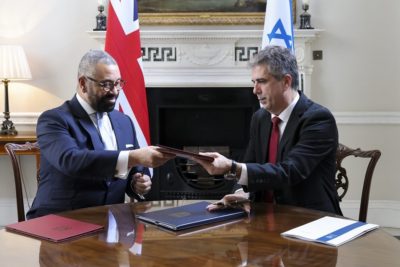Girl Guides defend controversial new deal with British army
The Observer
Petition launched after members claim partnership with military runs counter to the Guides’ peace ethos
The Girl Guides are braced for a backlash after signing a high-profile sponsorship deal with the army.
The controversial move has been attacked by some of the group’s 500,000 members as well as pacifist organisations, who claim the decision by Girlguiding, as it is now known, to accept sponsorship for an initiative involving members as young as four runs counter to its inclusive, peace-orientated ethos.
A petition on the change.org website protesting against the deal has been launched by Pippa Gardner, a Guides volunteer and former trustee, who is dismayed that members only learned of the sponsorshipin a newsletter. “Nobody knew it was coming.There was no consultation,” she said.
The army already sponsors a Cub Scouts badge, but its partnership with the Guides represents a ratcheting up of how it promotes itself to children. Over the August bank holiday weekend the army deployed recruitment vehicles and stands to at least one Guides event. Pictures posted on Facebook show young girls posing next to army vehicles while holding up “Army, Be the Best” posters.
Critics of the army’s decision to sponsor the Guides’ leadership skills builder initiative dismissed it as a PR stunt and pointed out that many human rights organisations, including the UN, are critical of the way the military targets potential recruits at a such an early age.
“Building interest in a young person takes a long time,” said Emma Sangster, co-ordinator of ForcesWatch, a campaign group that raises concerns about the army’s recruitment practices.
“The act of enlisting is only the final stage of the recruitment process. The armed forces know that, which is why they have a large and growing programme of youth engagement, with young children as well as teenagers. They don’t like to call it recruitment, but this is what it is. It also serves to promote military institutions and activities among young people more generally. We don’t think schools and youth organisations should be used as marketing channels in this way.”
A spokeswoman for the Guides defended the deal. “We’re proud of the extensive range of activities we offer to girls and young women and the diversity of opportunities this gives to members to develop their skills and interests,” she said. “We’re sorry to hear some members are disappointed in our partnership with the British army. Each partnership is developed to align with our strategy and programme of activities for girls and young women, both of which involve extensive consultation with our members.”
A 2017 survey commissioned by the Guides found that 63% of girls aged 11 to 21 would like to be a leader in their chosen job. “To ensure girls get the best experience possible from their time in Girlguiding, we seek partnerships that can add value and expertise within our new programme of activities, of which leadership is one,” the spokeswoman added. “The partnership with the British army focuses on enabling girls and young women to develop their leadership skills.”
But Sangster urged the Guides to think again. “The The military is controversial for many, with its use of force and the effect this has on those caught up in violent conflict. Its involvement in education, in youth groups and in community events is divisive and risks alienating many people.”
The army’s link with the Guides appears to be part of a broader and long-running attempt to promote the military to children. In 2012 the Department for Education developed a strategy to promote a “military ethos” in schools. More than £50m was awarded to the cadet expansion programme in 2015. And the government has set a target of opening 500 new cadet forces in state schools by 2020, focused in deprived areas.
An awaited independent report, commissioned by defence secretary Gavin Williamson, is expected to extol the development of a military ethos in schools and recommend setting up military academies.
See more: military in society, recruitment, ForcesWatch, youth organisations










